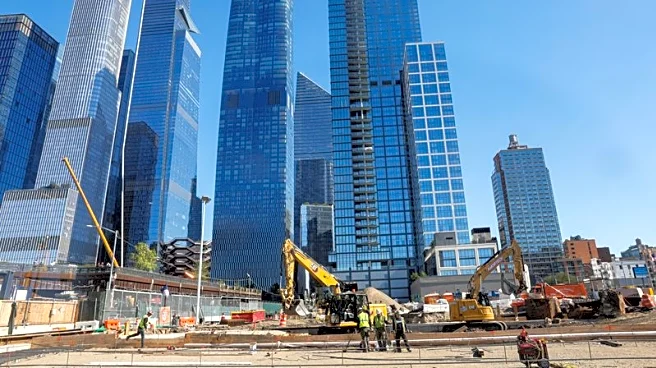What's Happening?
The Swaraj Utsav held in Pandavapura, Karnataka, focused on promoting rural self-reliance and empowerment as a means to achieve sustainable development. Organized by the Puttannaiah Trust and the Karnataka Rajya Raitha Sangha, the event emphasized the importance of harnessing local resources and adding value to agricultural produce to generate employment and economic strength in villages. MLA Darshan Puttannaiah highlighted the necessity of self-reliance for a nation with a large population, advocating for the development of rural areas as envisioned by Mahatma Gandhi.
Why It's Important?
The concept of gram swaraj, or village self-reliance, is crucial for sustainable national development, especially in a country with a significant rural population. By focusing on local resource utilization and value addition, villages can become economically independent, reducing reliance on external markets and fostering community resilience. This approach not only supports economic growth but also preserves cultural and historical heritage, promoting tourism and enhancing the quality of life in rural areas. The Swaraj Utsav serves as a platform for discussing and implementing strategies that can lead to long-term rural empowerment.
What's Next?
The themes and discussions from the Swaraj Utsav are likely to influence future policies and initiatives aimed at rural development. As awareness grows, more villages may adopt self-reliance strategies, potentially leading to a shift in national development priorities. Collaboration between government agencies, NGOs, and local communities will be essential to implement these strategies effectively and ensure sustainable progress.
Beyond the Headlines
The focus on rural self-reliance also raises important questions about the balance between traditional practices and modern development. As villages strive for economic independence, they must navigate challenges related to resource management, environmental sustainability, and social equity. The integration of cultural heritage into development plans can enhance community identity and cohesion, fostering a sense of pride and ownership among residents.










